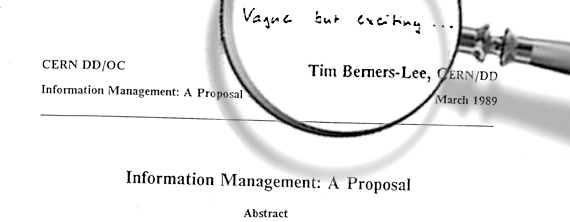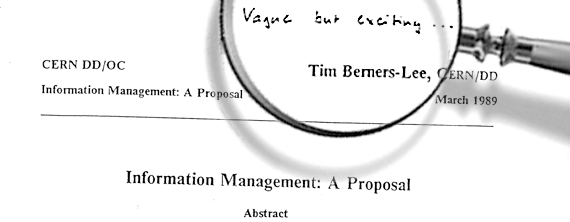
This is the third post in this series; the first two, which set the background for the issue, are available here and here.
The question therefore becomes – is it time we look beyond the ‘internet’ as it exists, to newer models of communication? The ‘models’ I refer to here are not absolutely novel – nothing under the sun is. These models still rely on the TCP/IP protocol, still use parts of the ‘internet’, still use the network laid down for it – learn from it, and improve it. These models, in fact, bring to mind the original image that was created of the internet, so much so that we can actually call these models of communication the legacies of the ideas of the ‘original internet’, challenging the dominance of the ‘neo-internet’. So is it time we focus on these models, develop them, and mark the decline of the ‘neo-internet’?
If we were to look for indications of such a shift, these would be categorised based on three criteria:
- Decentralised, network-based models of communication not being restricted to human communication;
- Usage of the same that goes beyond technologically-oriented or necessity-based circles; i.e., daily usage from the general public; and
- Increasing usage and popularity, sufficient to indicate a potential shift in public preferences.
What I am looking for here is not ‘repudiation’ or an ‘overthrow’ or ‘removal’ of the neo-internet, but simply a movement away from the same, towards a newer technology. What I am looking for, then, are indications of ‘destruction’ that simulate the ‘destruction’ of a monopoly, in reference to the technology being used to power communications.
On an analysis of contemporary events, two such ‘indications’ stand out, listed below. Crucially, these are considered from the perspective of public demand, the ‘need’ for this created by the centralisation, regulation and surveillance referred to above.
The first indication is the increasing popularity of decentralised communication methods facilitating human communication, such as mesh-networking, utilising NFC fields, local Wi-Fi networks, Bluetooth networks, so on and so forth. Not only did the mesh-networking based application Firechat see immense usage in Hong Kong recently, the technology is also hitting it off with teenage students in the US as it avoids mobile data charges.
The second indication, I would argue, is the upsurge in the focus on satellite-based internet provision for the masses. While it is arguably a form of network that is very close to the existing ‘neo-net’, it is an area that as of yet lacks monopolies. Furthermore, it is a form of networking which would be incredibly open to decentralised networking if a substantial number of nano-satellite clusters are deployed into the Low Earth Orbit/Geosynchronous Earth Orbit. As this field is still rather nascent, the exact implications and usage of it are yet to be seen, making it a variable.
After the above, there are two more examples which are indicative of a level of dissatisfaction with the primary market, regardless of whether Network Neutrality is implemented or not. It must be noted here that these two examples are not indicative of an ‘innovation’ that could potentially replace the existing ‘networks’, and therefore are not capable of ‘destroying’ the primary market.
The first and more ‘prominent’ of these is arguably the intense and increasing popularity and acceptance of Bitcoin (watch this video on how the Bitcoin is like the Internet in the 80s). The point to be noted with Bitcoins is that their appeal with the masses, beyond the technologically-oriented, largely centred the fact that they were decentralised, and therefore remained unregulated by governments or banks, and that they were anonymous.
The second example is the immense usage TOR networks see, a response to the regulation and centralisation of the internet. This could arguably be the most crucial example, but it fails to count in the above for three reasons: a) it is incredibly similar to the current model, a popular in-use model of the internet, mostly being used only to access the ‘Dark Web’. It thus does not count much towards a shift in technologies, being not ‘decentralised’ so much as ‘anonymised’; b) it has seen declining usage ever since it was hacked some time ago; and c) its usage is, arguably, restricted to people who are technologically-oriented in places where the usage of an anonymising network is not made necessary by surveillance.
The quintessential factor underlying the above two examples, though is the fact that P2P communication networks are seeing increasing commercial exploitation, though the specifics (read: non-piracy related) of such usage are harder to trace. Even the new update process in Microsoft’s new Windows 10 uses P2P communication! Thus, these three phenomena indicate a shifting preference towards network models based on the ideals of the original Internet, and away from the heavily regulated models of the current internet.
Moving Forward
The arguments that are made nowadays in these forums focus not on the question of ‘innovation’ or ‘centralisation’, or start-ups, or freedom of speech, or freedom of access to information, or anything that relates to ‘public good’ per se. The discourse, nowadays, is on how a lack of Network Neutrality will cost us, as individuals, more to access YouTube than it currently does. Thus, while I do not question the importance of Network Neutrality, what I do question is if we are losing sight of what matters when we discuss the same, especially in the dominant discourse in the public debate. I do wonder if our current focus on this concept, as a public whole, is flawed, and if it is time to start looking further into the future, for the next innovation that breaks the monopoly of the ‘internet’ as it currently exists, and ensuring that even this medium incorporates within itself the core tenets of Network Neutrality. It is only inevitable that the Schumpeterian cycle will continue on, and that the current ‘internet’ will be replaced with another new technology. Without taking away from the validity and importance of the fight for Network Neutrality, I believe that it is crucial for us to remember why Network Neutrality truly matters, and not allow it to distract us from the importance of ‘continued innovation’. Moreover, it is absolutely crucial that we ensure that Net Neutrality continues to be a part of whatever technology eventually replaces the Internet – because that change is, inarguably, inevitable.
My thanks to Pranav Agarwal and Trishi Jindal for their inputs on this series. You guys are awesome.
